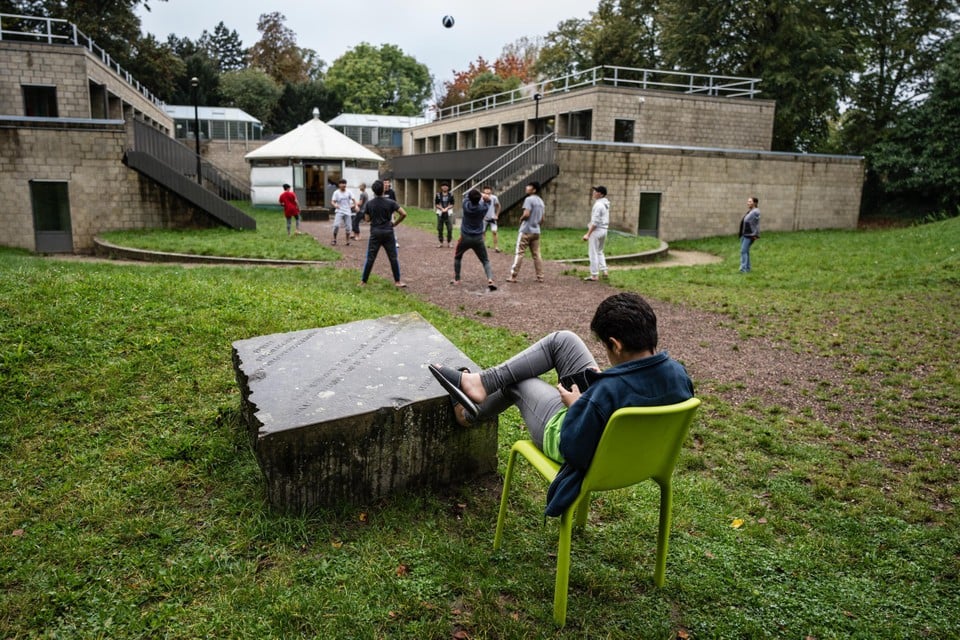In the stool of diseased several bacteria and viruses

In the middle of the month in Ljubljana, there was a massive outbreak of intestinal infections due to fecal contamination of internal plumbing. The National Institute of Public Health (NIJZ) is confirmed more than 500 cases of diseasedbut the health authorities point out that the actual number is probably much higher.
The epidemiological examination showed that the water in the facility was contaminated with the E.Coli bacterium, which was also confirmed by samples analyzed by the utility company Voka Power. « In addition to E.Coli, campylobacter bacteria and the possible presence of viruses such as astrovirus, adenovirus and sapovirus were found in the stool samples, » she said today at a press conference Eva Grilc S Center for Infectious Diseases at NIJZ.
580 calls, seven hospitalizations
So far, at the National Institute of Public Health, they have received 580 calls due to health problems, with some individuals called more than once. Most cases of patients were recorded between 15 and 16. April, but the symptoms also occurred later. The most common were diarrhea, vomiting, and in 17 percent of patients also fever. Seven people were referred to a hospital for problems where they were treated shortly. The average age of the patient was 47 years.
« We are aware that the actual number of infected ones is even greater, as not all patients have sought medical attention, » Grilc added.
Maximarket remains closed
Maximarket, managed by Mercator, has been closed in part for almost two weeks. The pollution has also affected employees in the surrounding institutions – including the National Assembly, the NLB and the Ministry of Foreign and European Affairs.
Voka Power explained at the time of the pollution that the contamination was limited to the internal installation of the facility and that the public water supply system in the center of Ljubljana was not affected. « We regularly and systematically maintain the water supply network in the city center and constantly monitor the quality of water, » they added.
What follows?
The NIJZ, together with the competent institutions, continues monitoring the situation and calls on anyone who has visited the Maximarket in recent weeks and have digestive problems to respond to a personal physician or to contact an epidemiological service.
At the first suspicion of drinking water pollution, the operator begins with the search for a source of problems, which includes « field inspections and laboratory measurements, » explained Voka Power. If the suspicion is confirmed, the analysis expands to a wider area – from source to users. If the origin is located in the internal installation of the facility, as happened in the case of the Maximarket, they inform the owner. « If the source is within the facility, it is no longer in our competence, but we advise the owner further steps. »
If the source remains unknown or the danger is not eliminated, temporary restrictions or even prohibition of use of drinking water may be accepted. « In such a case, we need to provide users with urgent supply of safe drinking water, either through tanks or bottled water, » explains Voka Power.
They claimed that « the water supply network in the center of Ljubljana is regularly and systematically maintained and constantly monitoring the quality of water ». In the case of the Maximarket, « pollution was confirmed in the internal installation of the facility, but not in the public water supply network ». They added that water quality measurements in the public system did not show any deviations.
When detecting any risk, security measures are triggered, which may also include « immediate removal of water water and user notification ». They also emphasized the importance of cooperation between the competent institutions: « In crisis, we cooperate with the NIJZ, the National Laboratory for Health, Environment and Food (NLZOH), and other authorities to ensure quick and effective action. »








:format(webp)/s3/static.nrc.nl/wp-content/uploads/2025/04/04111243/data130287438-072114.jpg)